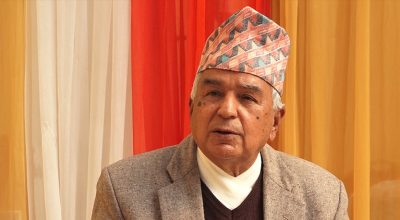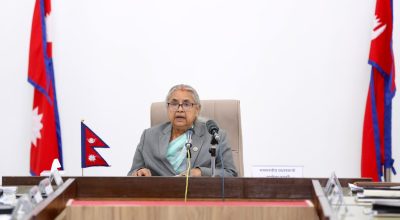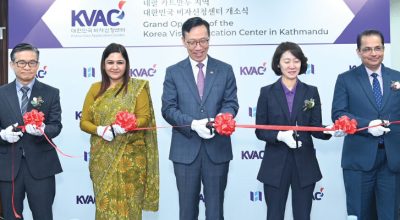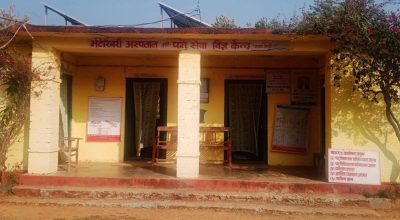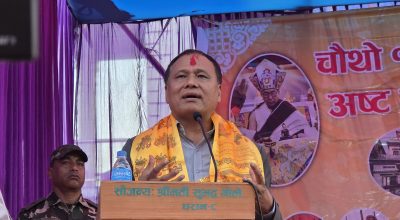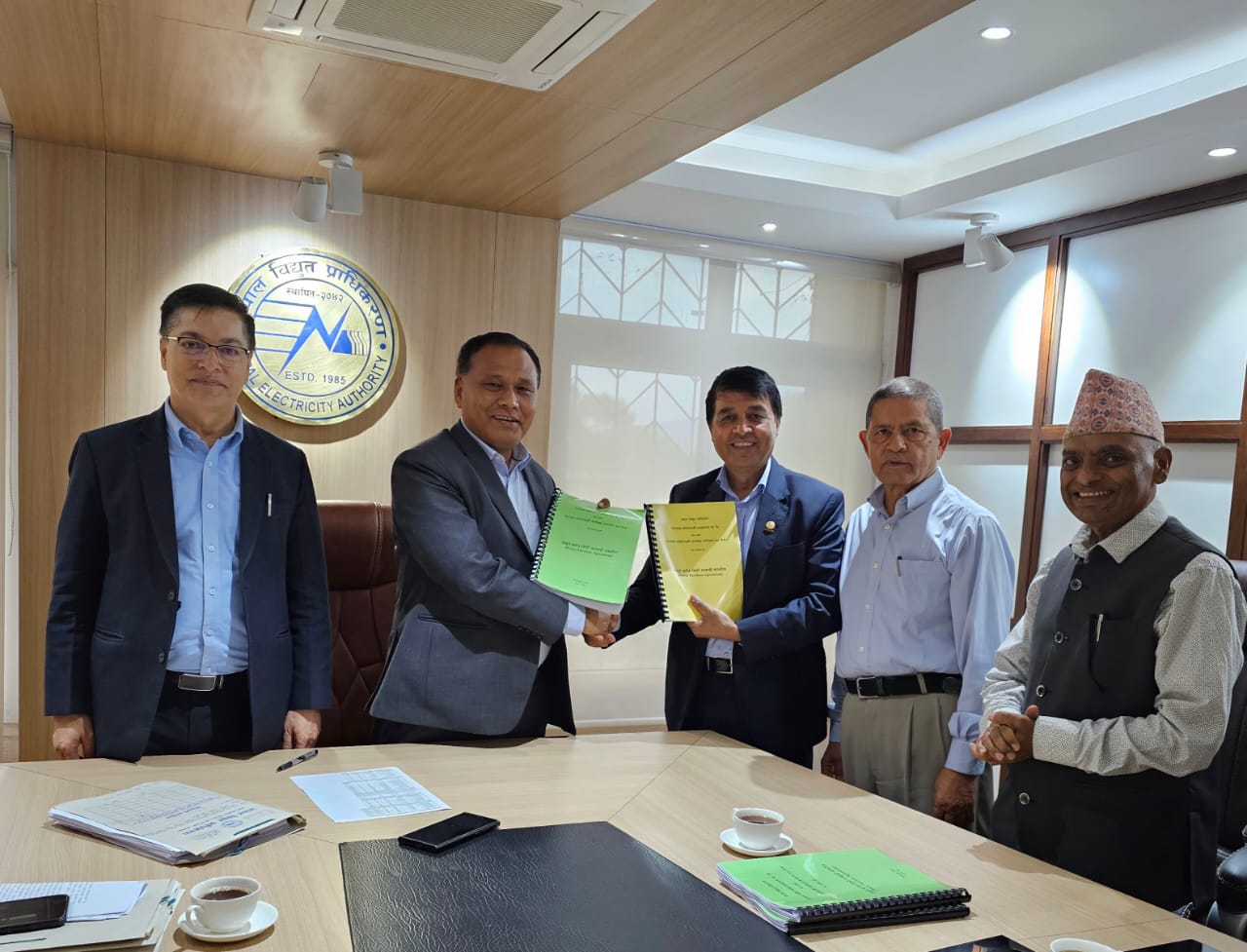
Kathmandu, Sept 6: IME Group has decided to construct a 152-MW Tiplyang Kaligandaki hydropower project, and an agreement has been completed between IME Group and Nepal Electricity Authority to purchase and sale of electricity.
The Executive Director of Nepal Electricity Authority (NEA) Kulman Ghising and the Chairman of Tiplyang Kaligandaki Chandra Prasad Dhakal have signed the purchase and sale agreement during a program held at Nepal Electricity Authority on Tuesday.
Although there is a power purchase and sale agreement of 58 megawatt capacity, the agreement has been obtained from the Electricity Development Department to increase the capacity of the project to 86 megawatts, so the purchase and sale agreement for the remaining capacity will be signed soon.
This project is located in Annapurna and Raghuganga Rural Municipality of Myagdi District. This project has been developed as a cascade of the Mid Kaligandaki Hydroelectric Project and Mistry Khola 2 Project. There is highway access to the project site and the transmission line has also been built.
The NEA will purchase the energy produced by the project at Rs.8.40 per unit in dry season and Rs.4.80 per unit in rainy season and increase the price up to eight times at the rate of three percent annually from the date of commercial production.
The electricity generated from the project will be connected to the Dana Substation under the Kaligandaki Corridor, which has been completed by the authority. The electricity purchase and sale agreement for the Upper Mid Kaligandaki hydropower project with a capacity of 66.3 MW from Hydro Support Pvt Ltd promoted by IME Group has already been completed.
The total electricity capacity of these two projects will be 295,468 gigawatt hours in the dry season and 630,895 gigawatt hours in the rainy season. Both the above mentioned projects are set to be completed within the month of Ashad, 2086 BS.
The total cost of the project is Rs. 33.14 billion. Equity investment in the project will be from IME Group and others, while the financial arrangement is under the leadership of NABIL Bank Limited.
While signing the agreement, Chairman Dhakal said, “After the projects come into operation, more infrastructures will be developed in the local area, more jobs will be created to the local people and the local skills will be enhanced, as well as there will be an increase in income and economic activities at the local level.”
It is expected that it can be a long-term source of income as the locals will get the opportunity to invest in shares.
In addition, it is expected that 152.3 megawatts of electricity will be added to the national integrated energy system to reduce the existing energy crisis, and it is expected to help to increase the local and regional economy from the large amount of money received annually by the central, provincial and local governments as electricity royalties and taxes.







